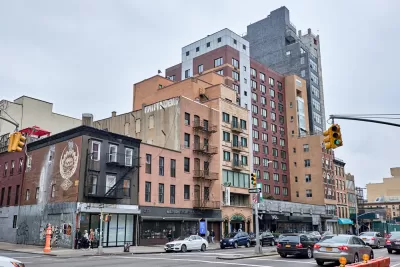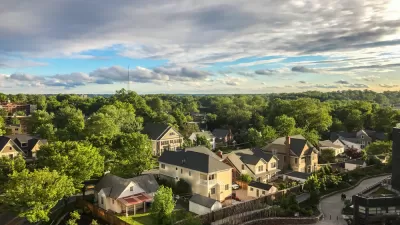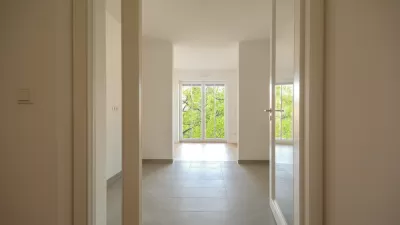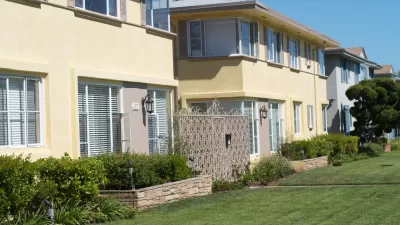Proposed legislation from Alexandria Ocasio-Cortez is a move toward more progressive housing policy. But critics say the one-size-fits-all approach is not the best solution for addressing the national housing crisis.

Kriston Capps takes a closer look at the rent control portion of Representative Alexandria Ocasio-Cortez’s tenants' rights bill, the A Place to Prosper Act, part of a legislation package called A Just Society.
"Among the proposed new protections is a national cap on annual rent increases, maybe the most explosive suggestion across all six bills. By establishing a national rent control doctrine, Ocasio-Cortez is putting down a federal marker in a national conversation about the affordable housing crisis," writes Capps.
Critics argue that a national rent control measure would curb new construction as investors move to other sectors of the real estate market and would encourage condo conversions. "Applying San Francisco–style rent controls to the apartment industry nationwide will tip the scales in a way that will make building new apartments impossible, [Doug] Bibby says."
Oregon and California have both passed legislation to cap rent increases. Proponents of the California bill, AB 1482, the Tenant Protection Act, say it is set up to balance the needs of tenants and landlords and to support new construction.
"A national rent control policy also raises questions about which problems Congress wants to solve. Is it that housing is unaffordable, so we need to build more of it, while protecting vulnerable renters in those neighborhoods where construction is happening? Or is it something larger about the nature of capitalism and the role of shelter as a human right?" notes Capps.
FULL STORY: Would AOC's National Rent Control Solve the Housing Crisis, or Make It Even Worse?

Alabama: Trump Terminates Settlements for Black Communities Harmed By Raw Sewage
Trump deemed the landmark civil rights agreement “illegal DEI and environmental justice policy.”

Planetizen Federal Action Tracker
A weekly monitor of how Trump’s orders and actions are impacting planners and planning in America.

The 120 Year Old Tiny Home Villages That Sheltered San Francisco’s Earthquake Refugees
More than a century ago, San Francisco mobilized to house thousands of residents displaced by the 1906 earthquake. Could their strategy offer a model for the present?

In Both Crashes and Crime, Public Transportation is Far Safer than Driving
Contrary to popular assumptions, public transportation has far lower crash and crime rates than automobile travel. For safer communities, improve and encourage transit travel.

Report: Zoning Reforms Should Complement Nashville’s Ambitious Transit Plan
Without reform, restrictive zoning codes will limit the impact of the city’s planned transit expansion and could exclude some of the residents who depend on transit the most.

Judge Orders Release of Frozen IRA, IIJA Funding
The decision is a victory for environmental groups who charged that freezing funds for critical infrastructure and disaster response programs caused “real and irreparable harm” to communities.
Urban Design for Planners 1: Software Tools
This six-course series explores essential urban design concepts using open source software and equips planners with the tools they need to participate fully in the urban design process.
Planning for Universal Design
Learn the tools for implementing Universal Design in planning regulations.
Clanton & Associates, Inc.
Jessamine County Fiscal Court
Institute for Housing and Urban Development Studies (IHS)
City of Grandview
Harvard GSD Executive Education
Toledo-Lucas County Plan Commissions
Salt Lake City
NYU Wagner Graduate School of Public Service





























